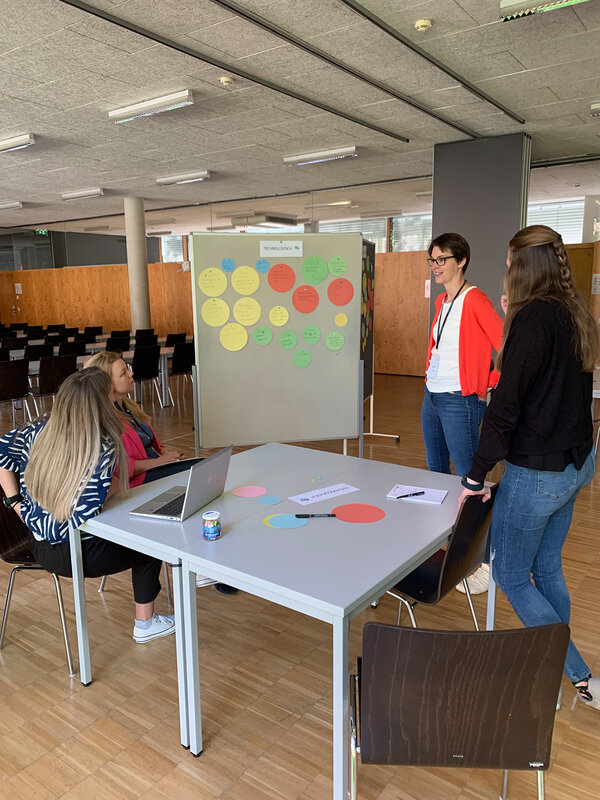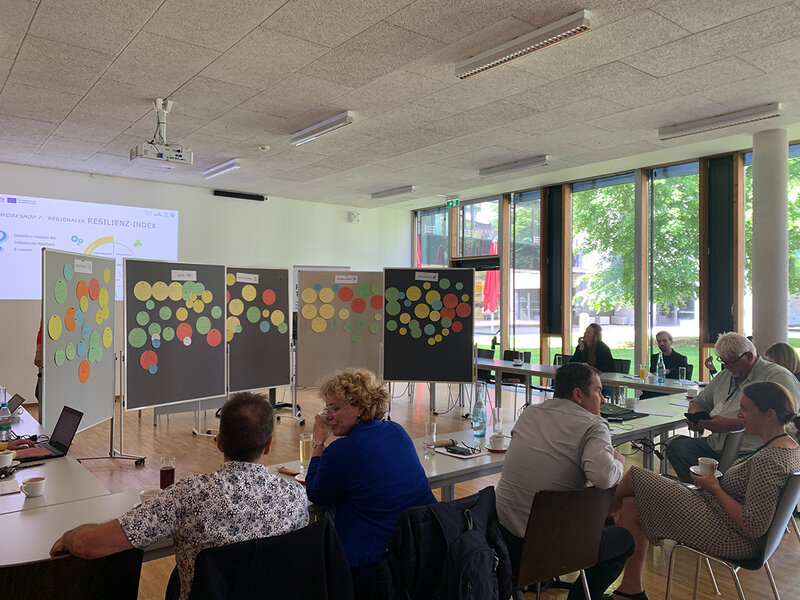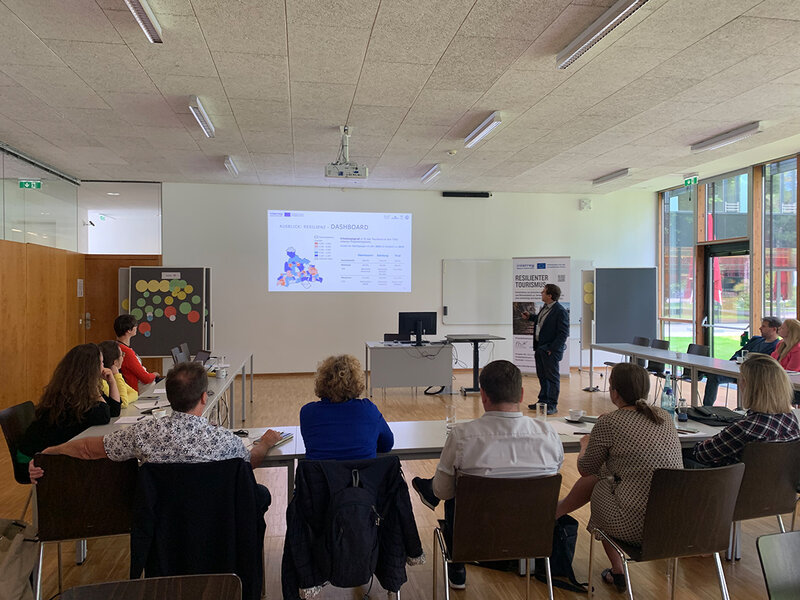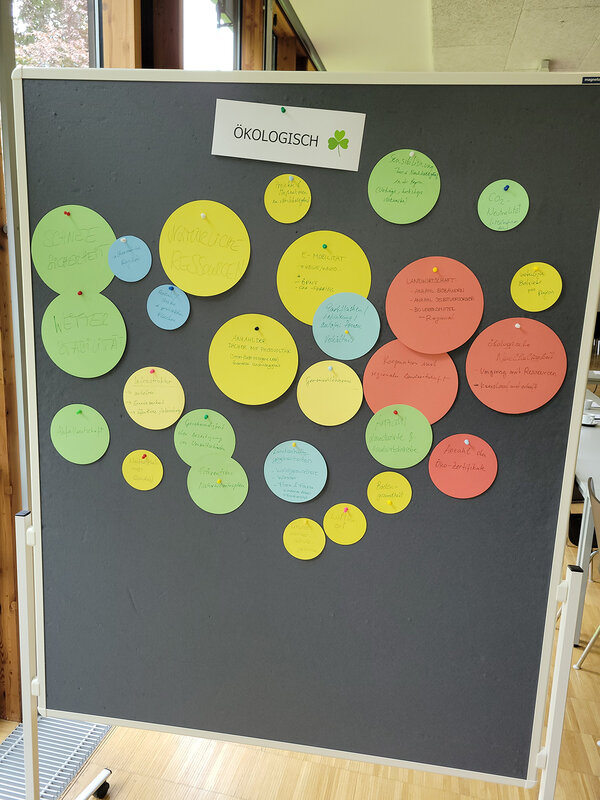Resilient tourism: workshop promotes crisis resistance
- 24.05.2024
- General
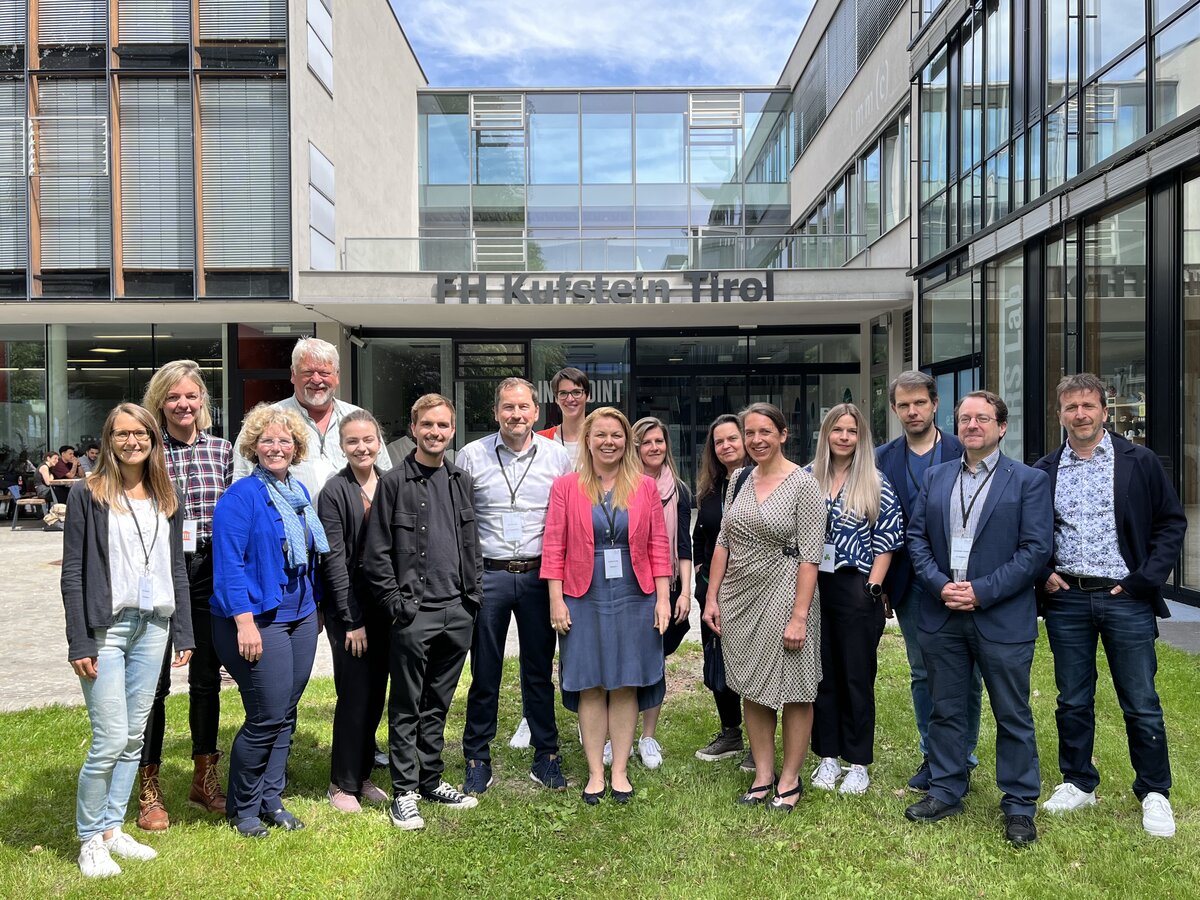
Eighteen participants from the hotel industry, tourism associations and Universities of Applied Sciences spent a dynamic morning exchanging ideas on how to make tourism in the regions of Tyrol, Salzburg and Upper Bavaria crisis-proof and adaptable in the long term.
In mid-May, the Kufstein University, as the lead partner in the Interreg project Resilienter Tourismus, organized a workshop on the topics of resilience indices and resilience management training. The focus was on the long-term crisis resistance and adaptability of the tourism industry.
The 18 participants included representatives from the hotel industry, tourism associations and Universities of Applied Sciences related to the tourism regions of Tyrol, Salzburg and Upper Bavaria. Building on a literature review on the topic of resilience in tourism, the workshop on the resilience index and the training program for resilience managers was a complete success. The project participants, associated partners and other stakeholders from the tourism industry further underpinned and developed the theoretically developed foundations with practical input and region-specific perspectives.
INTRODUCTION AND PROJECT PRESENTATION
After the welcoming address by the rector of the University of Applied Sciences Kufstein Tirol, Prof. (FH) Dr. Mario Döller, the project manager, Prof. (FH) DDr. Mario Situm, also welcomed all guests and presented the project Resilient Tourism, which is funded by Interreg Bavaria-Austria, the project goals and the current state of work. Prof. (FH) Dr. Christoph Hauser introduced the topic of the day and presented the five dimensions of resilience in relation to the tourism system. In the following workshop, the participants, led by Lea Carnuth and Helena Gey from the University of Applied Sciences Kufstein Tirol, were able to discuss in small groups which indicators can and should be used to measure resilience in tourism regions and which dimension of resilience the respective parameters can be assigned to. The intensive exchange continued during the coffee break, as the topic was of great interest to all participants. In the plenary session, the participants took up selected work results and presented them again for discussion. This revealed the complexity of the topic and the connection between possible indicators.
At the end of the first thematic block, Christoph Hauser gave an outlook on the desired project result: a resilience dashboard, based on the EU Tourism Dashboard, which provides online information on the resilience of individual tourism associations and regions in cartographic form. As a teaser, he presented a map of the Interreg Bavaria-Austria region, which shows the degree of recovery of tourism in percent in 2023 compared to 2019 (before Covid) at the level of tourism associations.
TRAINING PROGRAM AND FUTURE PLANNING
The second part of the workshop revolved around the planned training program for resilience managers. “We wanted to know from the participants which contents they consider necessary and useful,” said Mario Situm. “The results of the brainstorming and the subsequent plenary discussion will serve as the basis for the work package in focus in 2025.”
In terms of content, one topic in particular ran through the day: the potential of intensive, cross-border networking between stakeholders and tourism associations at different levels to increase the resilience of each and every individual. In this context, the participants discussed, for example, how to create synergies through resource awareness and joint marketing strategies. In the open conclusion, they laid the foundation for this and allowed the workshop to continue.
Links:
- Resilienter Tourismus | Research project

